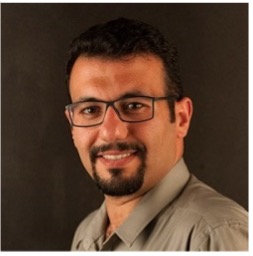9h00
Welcoming remarks

Robert Hornung
Independent consultant and member of the Net-Zero Advisory Body (NZAB)
Robert Hornung (he/him) is an independent consultant who has worked to design and advocate for climate change solutions for more than 30 years. His current focus is on the policy, regulatory and market changes required to enable the decarbonization and expansion of efficient electricity production, transmission and use to support the objective of net-zero. Clients include industry associations, environmental non-profit organizations, research institutes, think tanks, and strategic advisory firms.
Robert worked for almost 20 years as an advocate for sustainable and accelerated renewable energy deployment in Canada, most recently providing a common voice for Canada’s wind and solar energy industries for the first time as the founding President and CEO of the Canadian Renewable Energy Association for 2.5 years. Prior to that, he was President of the Canadian Wind Energy Association for 17 years as Canada’s installed wind energy capacity grew from 300 MW to more than 13,000 MW.
Robert also spent 9 years with the Pembina Institute as Climate Change Program Director and Policy and Communications Director. He supported international climate change negotiations at the Organization for Economic Cooperation and Development and worked on Canada’s first report to the United Nations Framework Convention on Climate Change at Environment Canada. With Friends of the Earth Canada, Robert was one of Canada’s first environmental advocates on the climate change issue.
9h15
Panel 1 – National and regional challenges
Panelists

Will Holowaychuk
The passion for agriculture was instilled early in Will who comes from a fifth-generation mixed cattle and grain family farm, located in the Kalyna Country of Alberta. Will has a Master of Agriculture (MAg) in Agriculture & Resource Economics and a Bachelor of Commerce (BCom) in Finance, both from the University of Alberta. His passion for agriculture has led him to his current role as a Policy Analyst with Alberta Canola. The organization represents the approximately 13,000 canola farmers in Alberta through research, extension, consumer engagement, and advocacy efforts to empower the world’s most successful canola growers. In Will’s role with Alberta Canola, he focuses on economic research, policy analysis, and advocacy efforts to enable the long-term economic viability and environmental sustainability of canola growers and agricultural farmers.

Tina Rasmussen
Tina Rasmussen is from Green Lake, SK., and a proud member of the Flying Dust First Nation. Tina has always focused her energy on her traditional homeland and economic development as a necessity to moving indigenous communities and individuals forward.
Tina is the Chief Business Officer for MLTC Industrial Investments, the Economic Development arm of the Meadow Lake Tribal Council. She has a diverse background of experience. Having spent 15 years as a municipal Chief Operating Officer, 20 years involved in Saskatchewan’s Health Authority Board Keewatin Yatthe and 9 years with Northern Lights Board of Education. She continues as a Board Member with Beaver River Community Futures supporting small business development in her home region. Tina brings a wealth of experience in a variety of fields and many connections to the Indigenous communities of Northern Saskatchewan. In addition Tina holds a BA Advanced from the U of S, a Certificate in Local Government Authority from the U of R and is certified as a Professional Economic Developer for Saskatchewan and a certified Technician Aboriginal Economic Developer (TAED).
In her capacity as Chief Business Officer, Tina focuses on creating new partnerships and business opportunities for the MLTC membership in a variety of areas including, forestry, oil and gas, renewables, hospitality, agriculture and broadband to ensure diversification and a strong MLTC presence. She believes strongly in developing the participation of Indigenous people and communities in the economic fabric of our province and our country and is working to advance this at every opportunity. Renewable energy is her strongest interest area. She has worked on the MLTC Bioenergy project, and several solar projects to date with a focus on MLTC participation in renewables into the future.

Mahima Sharma
Mahima oversees the development of industry’s position on key mill-focused environmental topics including climate-change, water, air, and chemicals, as well as advancing the role of forest-sector innovation plays in a low-carbon economy. This work is central to supporting industry investment and the sector’s competitiveness in Canada, to support decarbonization objectives, and advancing a forest-based bioeconomy. She oversees a team that conducts analysis and reporting of key sustainability performance indicators including energy, environment, and health and safety parameters for the pulp and paper and wood products sectors. This work is instrumental in ensuring that FPAC maintains its reputation for housing the latest and most relevant scientifically verified data on environmental performance.
Mahima has completed a Master of Chemical Engineering, as well as two undergraduate degrees in Chemical Engineering and Biochemistry from the University of Ottawa. She also completed a Master of Health Administration, where she held an internship position with the senior leadership team at The Ottawa Hospital. Most recently, she completed a Certificate of Climate Change Policy and Practice.
Mahima is currently a Board Director with the Centre for Research Innovation in the Bio-Economy (CRIBE), and a former Board Director with Volunteer Ottawa in the National Capital Region.

Evelyne Thiffault
Evelyne Thiffault is a forestry engineer who graduated from Université Laval in 2001 and holds a PhD in forestry science, also from Université Laval. She is an associate professor in the Department of Wood and Forest Sciences, and Scientific Director of Forêt Montmorency, Université Laval’s teaching and research forest. Her work focuses on the role of forestry in the energy transition and the fight against climate change.
10h20
Presentation 1 – Optimal development of the Canadian forest sector for both climate change mitigation and economic growth: an original application of the North American TIMES Energy Model (NATEM)
Presenter

Romain Chaffanjon
Energy system modeller at ESMIA Consultants
Romain is an Energy System Modeller at ESMIA. He participates in the development of optimization energy system models for cities, provinces/states and countries using several types of platforms. Romain led the development of an open-source energy systems model for the City of Toronto to study transition pathways towards a net zero target. He has experience using the open-source models TEMOA and SILVER. He works on new applications of the North American TIMES Energy Model (NATEM) , including the use of ESMIA’s models in life cycle analysis.
Prior to joining ESMIA, Romain gained strong experience in energy management for service and industrial sectors during his work at Veolia, a global leader in waste and water management, and at Imerys, a mineral mining company. He participated and led multiple projects. As an energy managers coordinator, he acquired expertise in industrial energy transition project development and designed a combined heat and power roadmap. As an energy assessment engineer, he enabled plants to perform with 10% higher efficiency. Finally, in his role as a GHG analyst, he measured scope 3 emissions from a multinational company.
Romain holds a Master’s degree in Mechanical Engineering from the French engineering school Ecole des Ponts Paristech. He also has a Master’s degree from Polytechnic Montréal in Energy Engineering and Environmental Science.
10h50
Networking break
11h20
Presentation 2 – Bioenergy supply and demand outlook in a net-zero Canada
The results examined complement the “Canada’s Energy Future 2023” report.
Presenter

Eranda Bartholameuz
Energy system modeler at Canada Energy Regulator
Eranda is an energy modeller in Canada Energy Regulator’s Energy Outlooks team. Eranda holds a PhD in Environmental Engineering and a master’s degree in Energy and the Environment both from the University of Calgary. He is a Professional Engineer with over 16 years research and consultancy experience in energy and environmental engineering fields. Eranda’s experience includes energy systems modeling, renewable energy systems, biomass and waste-to-energy, solid waste management, climate adaptation of energy systems, and GHG emission reduction.
11h50
Lunch
12h50
Panel 2 – Scaling up bioenergy systems
Panelists

Heather MacLean
Heather L. MacLean is a Professor in the Department of Civil & Mineral Engineering and Vice Dean Strategy for the Faculty of Applied Science & Engineering at University of Toronto. She holds a Canada Research Chair in Sustainable Systems and Technology Assessment. Her research focuses on systems level evaluation of current and emerging energy systems, transportation technologies and infrastructure systems, with attention to climate change and broader sustainability considerations. A significant focus of her work has been on evaluating the techno-economic and environmental performance of biobased energy and product systems. Her current projects include exploration of the potential of bioenergy with carbon capture and storage.

Edmund Mupondwa
Project leader and research scientist, Bioproducts and Bioprocesses at the Saskatoon Research and Development Centre and Adjunct professor at the University of Saskatchewan
Dr. Edmund Mupondwa is Adjunct Professor, Department of Chemical and Biological Engineering, University of Saskatchewan and specializes in engineering economics, biosystems technoeconomic analysis and life cycle assessment of bioproducts and bioprocesses. He is also a Project Leader/Research Scientist (Bioproducts and Bioprocesses, Clean Technology) at the Saskatoon Research and Development Centre (Science and Technology Branch, AAFC, Government of Canada).
He is nationally recognized for his interdisciplinary expertise and is widely consulted by public and private sector leadership, science colleagues, academia, industry, and other stakeholders. Dr. Mupondwa provides scientific leadership in engineering economics, biosystems technoeconomic analysis and life cycle assessment of biorefinery concepts in the context of the circular economy. His work includes multidisciplinary scientific research related to the bio-based feedstocks, materials, and technologies for advancing the biorefinery concept within the context of circular economy.
Dr. Mupondwa also serves as theme leader scientist and steering committee member of several multinational/multi-institutional/multidisciplinary research consortia, working groups, and advisory teams, as well as contributing to the development of numerous science and innovation strategies for advancing the bioeconomy.

Stefan Pauer
Manager, Technology and Economic Analysis at Clean Energy Canada
Dr. Stefan Pauer is the Manager of Technology and Economic Analysis at Clean Energy Canada, a think tank based at Simon Fraser University. Before joining Clean Energy Canada, Dr. Pauer carried out interdisciplinary research on carbon pricing in California and Europe at the University of British Columbia. Previously, he worked as a Policy Officer at the European Commission, where he helped develop and implement the European Union’s carbon market.

Nazim Sebaa
Vice-president of the Industrial Gas Users Association
Nazim Sebaa is an energy and regulations expert, currently vice-president of the Association des Consommateurs Industriels de Gaz (ACIG). He has over 15 years’ experience in the energy and climate sector.
Nazim began his career in 2008 working from the outset on the European carbon market and more specifically on the Kyoto project mechanisms, which enabled him to develop an in-depth understanding of environmental and energy issues. He then took up the position of Project Director for the municipality of Grenoble, where he oversaw the “Ville de Demain, Ville Poste Carbone” project, a large-scale sustainable urban planning project.
Over the next 5 years, Nazim continued his commitment to sustainable urban planning before moving to Quebec in 2017, where he joined ACIG as a regulatory analyst, then as regulatory director, and finally as vice-president.
During his tenure with IGUA, Nazim was heavily involved in issues related to the industry’s energy transition in Quebec, Ontario and nationally. Among other things, he was heavily involved in the RNG (Renewable Natural Gas) file with the Régie de l’Énergie du Québec, while working closely with the government to present the industry’s energy issues and needs.
13h50
Presentation 3 – Prioritising biomass uses to achieve net-zero target
Given the limited availability of biomass resources, it is important to prioritise applications that will substantially reduce greenhouse gas emissions and for which there is no better alternative that is technically and economically available.
In this work, a multi-criteria approach was developed to identify and prioritise the most promising uses for biomass.
Presenters

Milad Aghabararnejad
Mr. Aghabararnejad holds a Ph.D. in Chemical Engineering from École Polytechnique de Montréal. He has several years of experience in the simulation, design, and modeling of thermochemical processes for biomass conversion.
Currently, at CanmetENERGY, he leads projects associated with the optimal use of biomass and bioenergy for the decarbonization of heavy industrial processes such as iron and steel, cement, aluminum, refineries, etc.
Mr. Aghabararnejad is also responsible for CanmetENERGY’s training programs on pinch analysis and energy efficiency.

Serge Bédard
Mr. Bédard holds a bachelor’s degree in mechanical engineering and a Master degree in energy engineering from École Polytechnique de Montréal. He currently leads the sustainable industrial decarbonation activities at CanmetENERGY in Varennes, a research center of Natural Resources Canada.
He has 26 years’ experience in carrying out detailed energy analyses for the industrial sector, mainly for pulp and paper mills, oil refineries, petrochemical, metallurgical and agri-food industries. His main areas of expertise are pinch analysis for heat recovery, optimization of cogeneration systems, electrification of industrial processes and efficient use of bioenergy in industrial processes. Mr. Bédard is a member of the Quebec Order of Engineers.
14h20
Panel 3 – Energy yield and carbon intensity of bioenergy systems
Panelists

Serge Bédard
Mr. Bédard holds a bachelor’s degree in mechanical engineering and a Master degree in energy engineering from École Polytechnique de Montréal. He currently leads the sustainable industrial decarbonation activities at CanmetENERGY in Varennes, a research center of Natural Resources Canada.
He has 26 years’ experience in carrying out detailed energy analyses for the industrial sector, mainly for pulp and paper mills, oil refineries, petrochemical, metallurgical and agri-food industries. His main areas of expertise are pinch analysis for heat recovery, optimization of cogeneration systems, electrification of industrial processes and efficient use of bioenergy in industrial processes. Mr. Bédard is a member of the Quebec Order of Engineers.

Fred Ghatala
Fred Ghatala is the Director for Carbon and Sustainability of Advanced Biofuels Canada, a national industry association established to promote the production and use of advanced biofuels in Canada. Fred served as head of Canadian delegation to ISO 13065 ‘Sustainability Criteria for Bioenergy’, an international standard published in 2015. Within ISO 13065, he was the co-convenor of an ISO working group responsible for developing a consensus report assessing the state of science on indirect effects (e.g. ILUC). Fred has 19 years of relevant experience in climate change policy, sustainability standards development, emission quantification protocols, and fuel LCA models.

Ka Wing Ng
Mr. Ka Wing Ng is a Research Scientist with more than fifteen years of research and development experience (R&D) in cokemaking and ironmaking. He graduated from McGill University in 2000 and joined CanmetENERGY-Ottawa, Natural Resources Canada in 2005. He leads and manages R&D projects in substitution of fossil carbon by renewable biocarbon in steel production processes. He is currently the technical committee chairperson of the Canadian Carbonization Research Association (CCRA) and leader of multiple projects in fundamental coal science and blast furnace fuel efficiency funded by CCRA. Mr. Ng also contributed to the development of Canadian Steel Producers Association strategy plan to achieve net zero emission.

John (Jack) N. Saddler
John (Jack) Saddler is Professor of Biofuels and Bioenergy (originally an NSERC Industrial Chair) and Dean Emeritus of the University of British Columbia. He is a Fellow of the Royal Society of Canada and has received numerous awards, including the 2016 Linneborn Prize from the European Bioenergy Organisation and the Charles D. Scott Award for his contributions to the field of ‘biotechnology for fuels and chemicals’. His work is highly cited (index-H of 104, over 63,717 citations), he has published over 400 peer-reviewed papers, several books, holds several patents and is a regular reviewer and advisor for agencies such as the US Department of Energy, USDA, NSERC and the World Bank. He has assisted organisations such as Vinnova in Sweden with their Vinnvaxt cluster programme and served on the Finnish Luke Stakeholder Advisory Board for the Boreal Green Bioeconomy. He has advised policy makers at national and international level and is a former member of the selection committee for the Markus Wallenberg Prize, the Nobel Prize for Forestry.
He leads the BC-SMART consortium which focuses on the decarbonisation of the long-distance transport sector. His consultancy Torag Energy has worked for many national (e.g. NRCan, Transport Canada, US DoE) and international (e.g. IRENA, IEA, ITF, etc.) companies and organisations on the technical, policy and LCA aspects of decarbonising long-distance transport.

